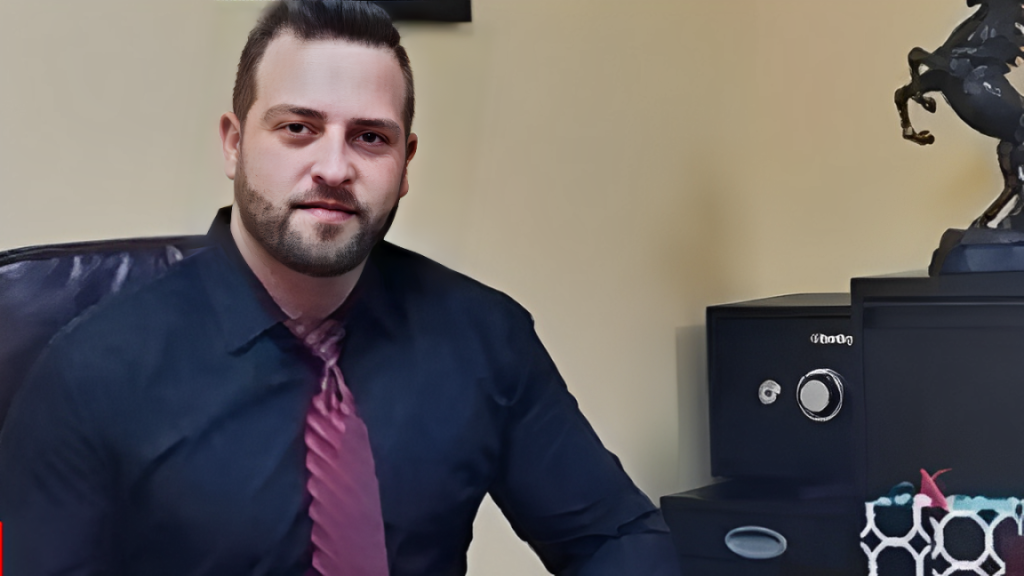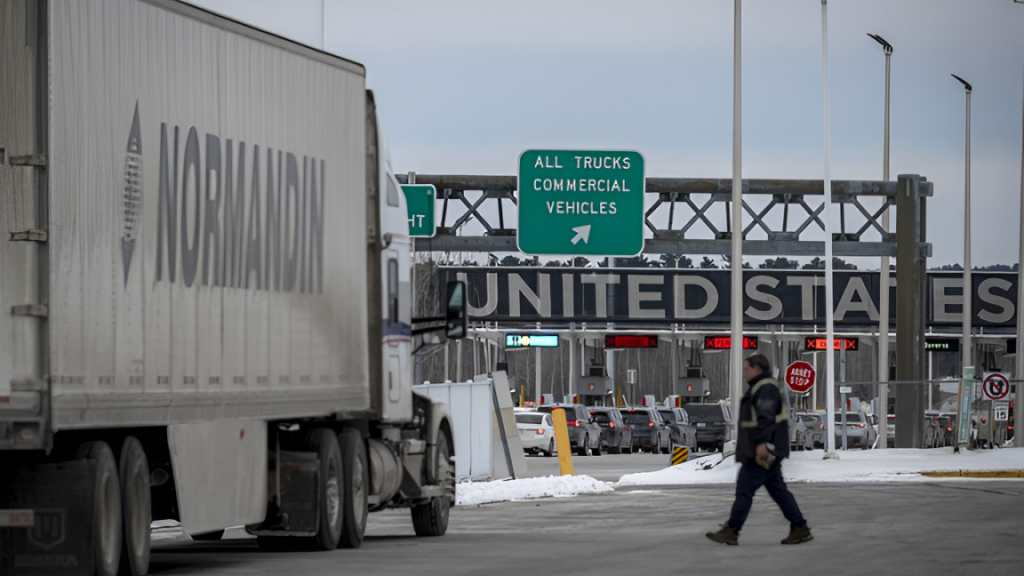
Bachir Atallah, a U.S. citizen and real estate attorney from New Hampshire, says he was shocked and humiliated after being detained by border agents while returning from a short trip to Canada.
Atallah and his wife, Jessica Fakhri, were stopped by U.S. Customs and Border Protection (CBP) at the Vermont-Canada border on a Sunday afternoon.
“I drove to Canada for the weekend with my wife, and when we came back, I was treated like a criminal,” Atallah told NBC10 Boston. He has been a U.S. citizen for over a decade.
Why This Matters?
This incident highlights growing concerns about how immigration laws are being enforced at the U.S. borders, especially under the Trump administration’s stricter policies.
Although Trump has repeatedly said that deportation and detentions would focus on individuals with criminal backgrounds, reports continue to surface of legal residents and even American citizens being targeted without cause.
Many are asking—if a citizen with valid documents can be treated like this, what does it mean for others with less legal protection?
What Exactly Happened?
According to Atallah, things quickly escalated after they crossed the border back into the U.S. He says one CBP officer aggressively approached his car and demanded that he step out.
“He asked me, ‘Exit the vehicle right now,’ and then reached for his gun,” said Atallah. “I immediately cooperated. I said, ‘OK, I’m getting out—please keep your gun down.’”
Atallah says he was then handcuffed and handled roughly. “They twisted my arm and wrist,” he said. “They walked me into the station while my wife was left sitting alone in the car, completely shocked.”
His wife, Jessica, added, “It was a total shock to me. I had no idea what was happening.”
When Atallah asked why he was being detained, he said no clear answer was given. “Even when you ask them questions, they say, ‘We don’t know, it’s the government.’”
Health Emergency During Detention
While in custody, Atallah began feeling sick and asked for medical help. Emergency services responded, and their report noted that he had high blood pressure and needed further treatment.
However, Atallah says he refused to go to the hospital after being told an officer would escort him and he would have to start the entire process over again afterward.
“They said they’d take me to the hospital, guard me, and bring me back to start all over,” he said. “It just didn’t feel right.”
Forced to Give Up Privacy

Things took a troubling turn when CBP agents reportedly asked to access his phone, including his email. Atallah, being an attorney, refused at first, citing attorney-client privilege.
“They pressured me into giving them access,” Atallah said. “I had to write and sign a statement saying I gave them permission, even though it was under duress.”
After hours of detention and repeated requests, Atallah finally convinced agents to call his sister, Celine Atallah, who is also an immigration attorney. Almost five hours later, he and his wife were released.
Now, they’re considering legal action against CBP.
Not an Isolated Case
Atallah’s experience is not unique. Over the past few years, there have been multiple incidents of legal residents and even U.S. citizens being detained under new immigration enforcement practices.
For example, in early March, Mahmoud Khalil, a Palestinian green card holder and student activist, was detained by ICE in front of his pregnant wife in their New York apartment. In another case, Jensy Machado—a naturalized American citizen and supporter of Trump—was held by ICE in Virginia.
These cases raise serious concerns about who is being targeted and why.
What CBP Is Saying?
CBP officials have denied Atallah’s claims.
Hilton Beckham, Assistant Commissioner for CBP, stated: “The traveler’s accusations are blatantly false and sensationalized. CBP officers followed standard procedures.
The traveler was referred for secondary inspection, which is a routine and legal process. Written consent was obtained for a limited search of his electronic device, and care was taken to respect attorney-client privilege.”
Despite the denial, Atallah and his family insist that the experience was traumatic and unacceptable.
What Does His Family Say?
Celine Atallah, Bachir’s sister and immigration attorney, believes this issue goes beyond just immigrants.
“It’s not only about immigrants anymore,” she said. “Even Americans are being treated unfairly. If it can happen to my brother, it can happen to anyone.”
What’s Next?
Atallah is scheduled to travel to Lebanon soon and is unsure about what to expect when he returns to the U.S.
“I’m worried about what will happen when I come back,” he said. “I love this country. I believed it stood for fairness and justice. But after this experience, I’m not so sure anymore.”
The Bigger Picture
This story adds to the ongoing debate about how immigration laws are enforced in the U.S. Many experts argue that the government’s current strategy may be crossing lines and putting innocent people at risk.
While security is important, critics say that respect for civil rights and due process must not be forgotten—especially for those who are U.S. citizens.
